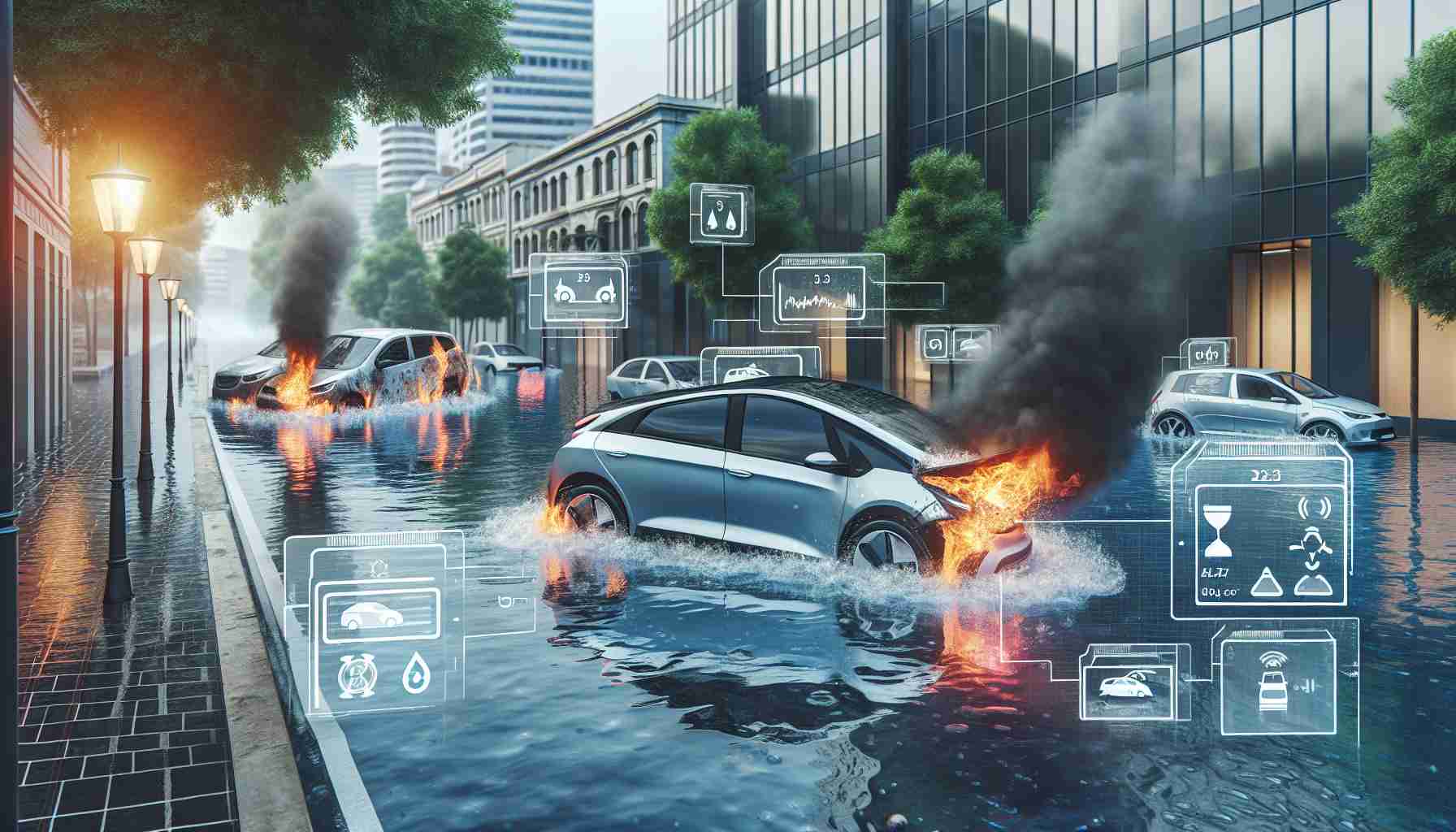As hurricane season approaches, safety officials are urging electric vehicle (EV) owners to take precautions regarding flooding. Reports indicate that electric vehicles, particularly those powered by lithium-ion batteries, can potentially pose fire hazards if submerged in saltwater. The warning, especially pertinent for residents in coastal regions, advises keeping these vehicles clear of areas that may experience significant storm surge or flooding.
Emergency services highlighted the importance of relocating EVs before storms strike, emphasizing the necessity to safeguard these vehicles from saltwater exposure. Flooding can lead to dangerous chemical reactions within lithium-ion batteries, which are also utilized in gadgets like e-bikes and various electrical tools. Although instances of battery fires due to flooding are uncommon, they do present a legitimate threat.
Data from previous storms, such as Hurricane Helene, revealed that numerous EV fires resulted in property damage, including at least one home being destroyed. With Florida possessing over 254,000 registered electric vehicles as of late 2023, awareness of this issue is crucial for public safety.
Saltwater intrusion can create conditions where electrical components short-circuit within batteries, resulting in overheating and potentially leading to thermal runaway—a phenomenon where the heat from a failing cell can ignite adjacent cells. This chain reaction can create a prolonged and difficult-to-control fire, further emphasizing the need for caution in flood-prone zones during hurricane season.
Essential Tips for Electric Vehicle Safety During Hurricane Season
As the hurricane season approaches, it’s vital for electric vehicle (EV) owners to be proactive about safety. Here are some valuable tips, life hacks, and interesting facts that can help ensure your EV remains safe amidst the threat of flooding and storms.
1. Relocate Your EV: Before an anticipated storm, make sure to move your electric vehicle to higher ground or a location less likely to flood. This simple act can significantly reduce the risk of your vehicle being damaged or creating fire hazards.
2. Know Your Vehicle’s Water Resistance: While many EVs are designed to handle light rain and splashes, it’s important to understand the limits of your vehicle. Check the manufacturer’s specifications regarding water resistance and flooding.
3. Invest in a Flood Cover: Consider purchasing a custom flood cover for your vehicle. While it won’t prevent all water damage, it can help shield your vehicle from water intrusion if you cannot relocate it in time.
4. Keep Emergency Contacts Handy: Have a list of emergency services and services specific to electric vehicles programmed into your phone. In the event you experience an emergency due to flooding, you’ll be prepared to contact the right services.
5. Understand the Risks of Saltwater: Saltwater can be particularly corrosive, so if your vehicle is exposed to saltwater, it is crucial to have it inspected by professionals to avoid long-term damage.
6. Stay Informed on Local Weather Conditions: Keep up-to-date on storm predictions and changes in weather. Utilize weather apps that provide alerts for your specific geographical area to stay prepared.
7. Maintain Your Battery Health: Regularly check the health of your battery. A healthy battery is less likely to have issues during extreme conditions. Look for signs of wear or problems and address them before hurricane season strikes.
Interesting Fact: Did you know? Lithium-ion batteries, while commonly used in electric vehicles, are also found in many of your favorite gadgets, like smartphones and laptops! Understanding their properties can help you ensure their safe use not just in cars, but in daily life.
8. Plan for Charging Options: In the event of a power outage caused by storms, locate charging stations in advance that are less likely to be affected by flooding. Knowing where to charge can save you time and hassle.
Emergency Preparedness Resources: Familiarize yourself with local emergency management websites; many regions provide guidance specifically tailored to EV owners during natural disasters. This information can be invaluable for quick decision-making.
As we navigate hurricane season, the safety of electric vehicles deserves special attention. By following these tips, you can help mitigate the risks associated with flooding and ensure the safety of your vehicle and property. For further details on electric vehicle safety and preparation, visit the NHTSA website for the latest information and guidelines.
